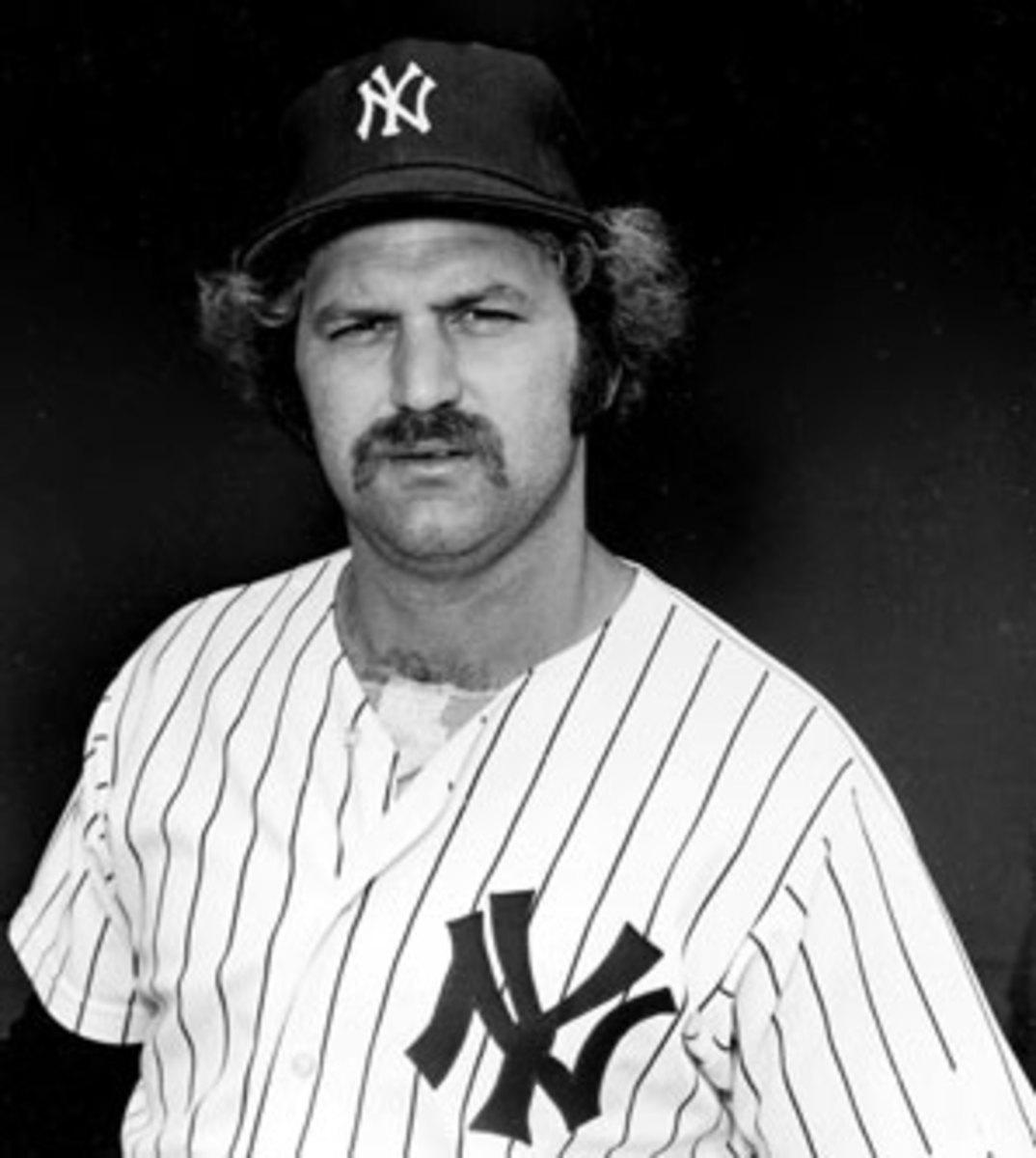Book reveals different side of former Yankee Thurman Munson
For nearly 30 years, the tapes resided in his dresser -- second drawer down from the right. Oh, from time to time Marty Appel thought about listening to them, about revisiting the joy and stress and outlandishness and seriousness and, mostly, the pain. "Years ago I think I played one once, just for a few seconds," he said. "But that was about it."
Back in 1977 Appel coauthored Munson, the autobiography of Thurman Munson, the Yankees' catcher. Appel was fresh off a nine-year stint as the team's public relations director. He was 29 years old and new to book writing. When he approached the notoriously gruff backstop with the idea of a literary endeavor, Munson agreed, but only under the condition that he, ahem, reveal very, very little.
"It was hard," Appel said. "Thurman was a great guy, but he didn't want to get into any controversy and he didn't want to delve into his background or boyhood. So while I'm happy that book came out, there were serious holes."
When Munson died in a plane crash at age 32 on Aug. 2, 1979, Appel -- along with the entire city of New York -- was distraught. Numb. Arriving for the funeral in Canton, Ohio, he was lovingly embraced by Thurman's widow, Diana. "I want you to know how much that book you did with Thurman means to us all now," she told him. "We will always have that."
Thirty years.
The funeral began. The funeral ended.
Thirty years.
The Yankees found new catchers. Brad Gulden,Rick Cerone, Butch Wynagar, Joel Skinner, Mike Figga, Joe Girardi, Jorge Posada ....
Jimmy Carter was president. Then Ronald Reagan. Then George H.W. Bush. Then Bill Clinton. Then George W. Bush. Then Barack Obama.
Munson's teammates aged and grayed and wrinkled. The player he was closest to, Bobby Murcer, died last summer
The tapes sat. And sat. And sat.
One day, a couple of years ago, Appel decided the time had come. He opened the second drawer on the right, pulled out the tapes -- 12 in all. The sound of Munson's voice -- young, vibrant, alive -- startled him. To the New York media that covered the Bronx Zoo back in the late 1970s, Munson was often an ornery, unhelpful wart of a man. He could be rude, dismissive and combative. Once, upon receiving a pair of cuff links as a present from an adoring fan, Munson turned to those around him and barked, "What the %$#@ would I want these for?"
Yet Appel had long recognized the insecurity masked by the outbursts. Back then the Yankees were a festering stew of insanity -- Reggie Jackson fighting with Billy Martin; George Steinbrenner threatening to fire everyone. "Thurman never felt comfortable with that," Appel said. "He was the captain, but all he wanted to be was a ballplayer, not someone asked to comment on every little off-the-field debate. He was uncomfortable in the spotlight, but he was not a bad man. There was a lot to him."
That is made clear in Appel's latest book, Munson: The Life and Times of a Yankee Captain. A significantly more complete -- and better-written -- work than the original, Munson should go down as the summer's best baseball book. As opposed to the surface-level depth of the original, this Munson takes the reader back to Thurman's hardscrabble youth in Canton, where he was raised by a dismissive, impossible-to-please father who scoffed at his son's baseball accomplishments and took perverse pleasure in pointing out his flaws. "Thurman didn't want to go into those things," Appel said. "I understood. But time has passed."
Because he was a first-hand participant in Munson's big-league career, Appel occasionally inserts himself into the narrative -- and it works brilliantly. Though he might lack the literary chops of a Mark Kriegel or Leigh Montville or Jonathan Eig, three of the great sports biographers of this era, Appel -- like Munson once did -- makes up for any natural flaws with tenacity and intensity. He interviewed more than 150 people for the book, tracking down long-lost family members and childhood friends and forgotten teammates (Where have you gone, Tippy Martinez?).
Most poignant, Appel take a step-by-step, moment-by-moment look at Munson's final minutes, when the Cessna Citation he was flying (Munson was a licensed pilot) crashed in at the Akron-Canton Regional Airport. The reader is left with the painful conclusion that the crash was Munson's fault, but also with the knowledge that a man died doing what he loved. "I read over the book four times before I was ready to let it go," Appel said. "And there were certain parts where, every time, my eyes welled up in tears. On the one hand, it seems like forever ago. On the other hand, it can feel like yesterday. His death stuck."
In this modern age of major league baseball, with performance-enhancing drugs and ubiquitous corporate logos and outfield swimming pools and bottled quotes, it is easy to forget that the Yankees once had the anti-Jeter as a captain. That long ago image meant very little. Sometimes, it's good to remember.






